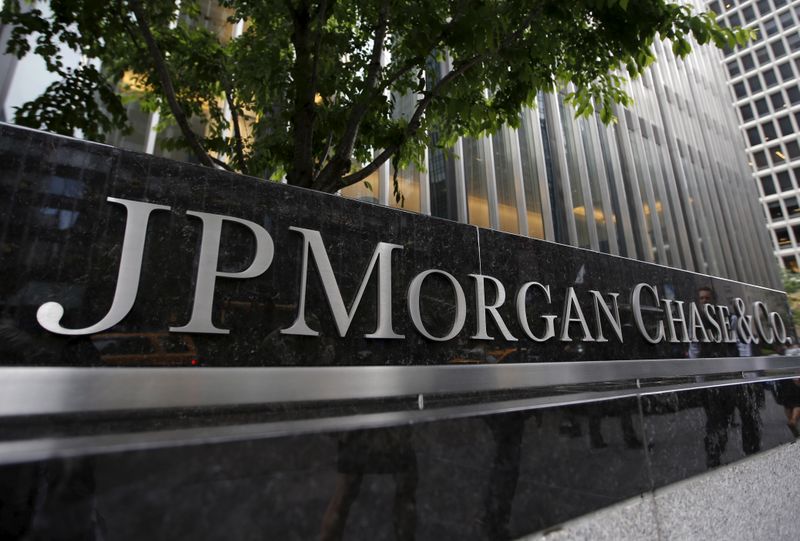This post was originally published on this site
https://i-invdn-com.akamaized.net/trkd-images/LYNXMPEG9C0TD_L.jpg
Trading was a bright spot for the quarter, even as the pandemic decimated the U.S. economy, with thousands of businesses shutting down and the unemployment rate soaring. The economic fallout of the pandemic has triggered one of the worst recessions in decades.
JPMorgan also benefited as it set aside less reserve provisions, compared with the first two quarters of the year. Revenue from capital markets and investment banking also helped offset declines in its consumer business.
The bank’s trading revenue jumped 30% to $6.6 billion.
The biggest U.S. lender set aside $611 million for loans that may go bad, less than the $10.5 billion it put away against future losses in the previous quarter.
The bank’s net income rose to $9.44 billion, or $2.92 per share, in the quarter ended Sept. 30, from $9.1 billion, or $2.68 per share, a year earlier.
Analysts on average had expected earnings of $2.23 per share, according to Refinitiv.
JPMorgan’s net interest income fell 9% to $13.1 billion as the U.S. Federal Reserve kept rates at nearly zero to offset the impact of the pandemic.
Citigroup Inc (N:C) reports later on Tuesday, followed by Goldman Sachs Group Inc (N:GS), Wells Fargo & Co (N:WFC) and Bank of America Corp (N:BAC) on Wednesday and Morgan Stanley (N:MS) on Thursday.

